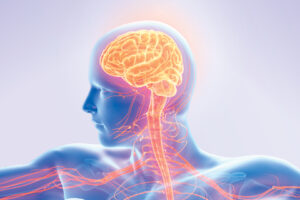If you or someone you know is having suicidal thoughts, you are not alone. An estimated 9.3 million adults have reported having suicidal thoughts in the past year, according to the Centers for Disease Control and Prevention (CDC). Recent celebrity suicides can perpetuate these thoughts, as can other triggers for depression, such as the death of a loved one, the loss of a job, or a breakup.
Mental health struggles are invisible, misunderstood aspects of health care. Poor mental health, also known as behavioral health, is an illness like any other, but it impacts your brain instead of another organ.
The main cause of suicide is depression. However, there are several levels of depression:
- Depressed mood: A short-term, periodic, passing feeling of sadness, anger, or feeling down that may last a few hours or days. Those in a
depressed mood are still able to function and complete day-to-day tasks. - Depression as a symptom of medical illness or substance use
- Depression syndrome: Symptoms of depression that are caused by a chemical imbalance in the brain or another medical condition. Symptoms include lack of interest, lack of motivation, low energy, isolation, changes in sleep patterns, changes in appetite, feelings of hopelessness, and suicidal thoughts.
Conditions requiring professional attention can range from feelings of hopelessness to self-harm, such as cutting.
Is it Depression or a Health Issue?
Our minds and bodies work in tandem, so our bodies can send signals to our minds about medical issues such as:
- Cardiac issues
- Blood diseases
- Endocrine issues
- Thyroid issues
- Female hormone imbalances
- Cushing syndrome
- Electrolyte imbalances
- Dehydration
- Urinary tract infections (UTIs)
- Concussions
- Brain disorders
- Substance abuse issues
Because there are many medical conditions like these that can spur depression and suicidal thoughts, it’s important to speak with your primary care physician about how you’re feeling. He or she will perform a physical exam and may order tests to rule out a medical issue. If no other cause is found, your doctor can treat your depression or refer you to a psychiatrist.
When a Friend Needs Help
If a friend or loved one confides in you about his or her mental health struggles, it’s best to refer them to a medical professional. Here are the steps you can take:
- Encourage your friend to discuss those feelings with a spouse, parent, or other close family member.
- Advise him or her to see a medical doctor or licensed mental health professional as soon as possible.
- Call a suicide hotline. CentraState’s 24-hour crisis hotline is 732-780-6023.
If you feel that the situation is severe—meaning it’s moved beyond short-term sadness—immediately drive him or her to an emergency department for evaluation or call a crisis hotline.
CentraState Medical Center’s behavioral health team includes a full-time medical director and a nursing director as well as psychiatrists, a PhD- credentialed psychologist, credentialed therapists, psychiatric nurses, a licensed substance abuse counselor, social workers, and activity and occupational therapists. To learn more visit CentraState’s behavioral health services, or call 866-CENTRA7 (866-236-8727).





